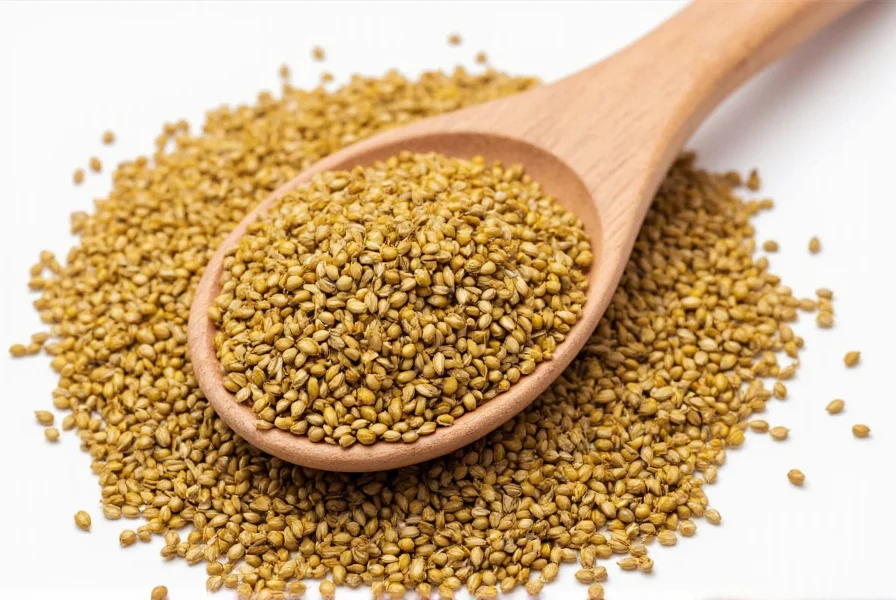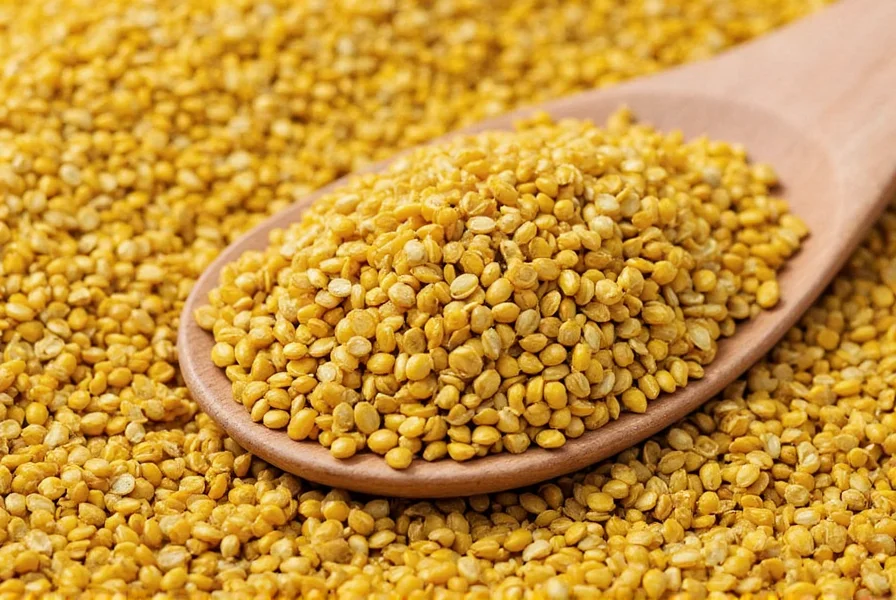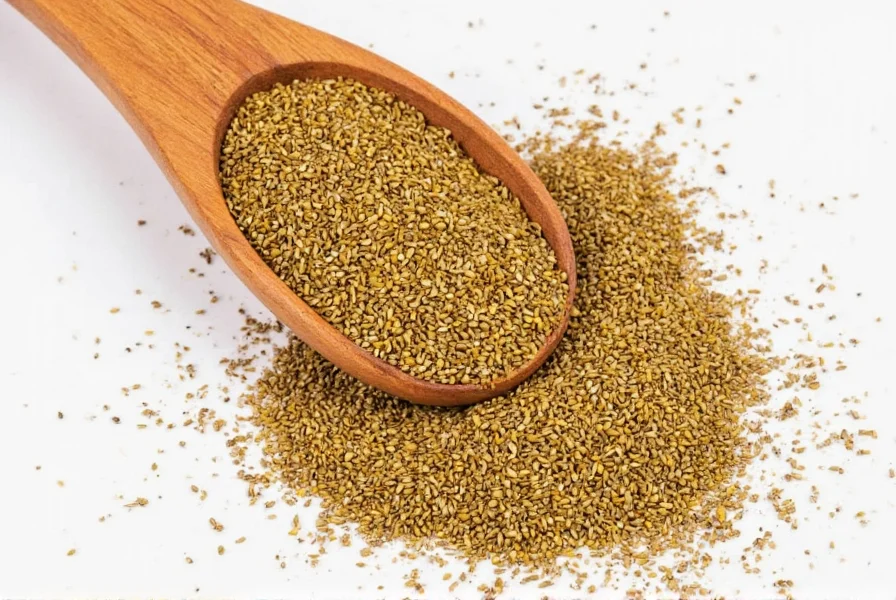Mustard seeds, though small in size, pack a substantial nutritional punch that has been valued across cultures for centuries. These tiny powerhouses come in three primary varieties—black (Brassica nigra), brown (Brassica juncea), and yellow (Sinapis alba)—each offering unique flavor profiles and slightly different nutritional compositions. Modern research continues to validate traditional uses of mustard seeds, revealing multiple evidence-based health advantages that extend far beyond their culinary applications.
Nutritional Powerhouse: What Makes Mustard Seeds Special
Mustard seeds contain a remarkable concentration of essential nutrients relative to their size. A single tablespoon (9 grams) delivers approximately 59 calories, 3 grams of dietary fiber, 3 grams of protein, and significant percentages of your daily value for several critical minerals. Their nutritional advantage lies not just in basic macronutrients but in specialized bioactive compounds that contribute to their health-promoting properties.
| Nutrient | Black Mustard Seeds (per 100g) | Yellow Mustard Seeds (per 100g) |
|---|---|---|
| Calories | 508 kcal | 506 kcal |
| Protein | 26.1 g | 25.9 g |
| Fat | 36.2 g | 35.9 g |
| Carbohydrates | 28.1 g | 28.3 g |
| Dietary Fiber | 12.2 g | 11.8 g |
| Calcium | 740 mg (74% DV) | 738 mg (74% DV) |
| Magnesium | 370 mg (88% DV) | 367 mg (87% DV) |
| Phosphorus | 828 mg (66% DV) | 824 mg (66% DV) |
| Selenium | 25.6 mcg (46% DV) | 24.9 mcg (45% DV) |
This comprehensive nutritional profile makes mustard seeds particularly valuable for addressing common dietary deficiencies. The health benefits of black mustard seeds are especially notable due to their higher concentration of certain bioactive compounds compared to other varieties.

Science-Backed Health Advantages of Mustard Seeds
1. Potent Anti-Inflammatory Properties
Mustard seeds contain significant amounts of selenium and magnesium, minerals known for their anti-inflammatory effects. Research published in the Journal of Agricultural and Food Chemistry demonstrates that the glucosinolates in mustard seeds break down into isothiocyanates during digestion, compounds that inhibit inflammatory pathways at the cellular level. This makes mustard seeds for inflammation management particularly valuable, potentially helping with conditions like arthritis and other inflammatory disorders. Unlike pharmaceutical anti-inflammatories, mustard seeds provide this benefit without adverse side effects when consumed in culinary amounts.
2. Cardiovascular Protection Through Healthy Fats
The fatty acid profile of mustard seeds offers substantial heart health benefits. Approximately 60% of their fat content consists of monounsaturated and polyunsaturated fats, including omega-3 and omega-6 fatty acids in a favorable ratio. Studies in the American Journal of Clinical Nutrition show that regular consumption of these healthy fats helps reduce LDL cholesterol while maintaining HDL levels. The magnesium content in mustard seeds also contributes to how mustard seeds improve heart health by promoting healthy blood pressure levels and proper cardiac muscle function.
3. Blood Sugar Regulation Capabilities
Emerging research suggests mustard seeds may help regulate blood glucose levels. A 2022 study in Nutrition Research found that participants who consumed mustard seed powder daily showed improved insulin sensitivity compared to the control group. The high fiber content slows carbohydrate absorption, while certain compounds in mustard seeds appear to enhance insulin receptor function. This makes understanding the nutritional value of mustard seeds particularly relevant for those managing prediabetes or type 2 diabetes.
4. Rich Antioxidant Content
Mustard seeds rank highly on the Oxygen Radical Absorbance Capacity (ORAC) scale, which measures antioxidant capacity. They contain flavonoids, carotenoids, and tocopherols that neutralize free radicals responsible for cellular damage. The antioxidant properties of mustard seeds are particularly concentrated in the seed coat, making whole seeds more beneficial than processed mustard oil alone. Regular consumption contributes to reduced oxidative stress, potentially slowing age-related cognitive decline and protecting against chronic diseases.

5. Digestive Health Support
The high fiber content in mustard seeds promotes healthy digestion through multiple mechanisms. Insoluble fiber adds bulk to stool, while soluble fiber feeds beneficial gut bacteria. Traditional medicine systems have long used mustard seeds to stimulate digestive enzyme production. Modern research confirms that compounds in mustard seeds enhance bile production, which aids in fat digestion. Understanding the mustard seeds benefits for digestion reveals their role in preventing constipation, reducing bloating, and supporting overall gastrointestinal health.
6. Potential Cancer-Fighting Compounds
Glucosinolates in mustard seeds break down into isothiocyanates, compounds extensively studied for their potential anti-carcinogenic properties. Research from the National Cancer Institute indicates these compounds may help detoxify carcinogens and inhibit tumor growth. While human studies are ongoing, population studies show lower cancer incidence in regions where mustard seeds are regularly consumed as part of traditional diets. The scientific evidence on mustard seeds benefits in cancer prevention, while promising, suggests they work best as part of a diverse, plant-rich diet rather than as a standalone solution.
7. Essential Mineral Density
Mustard seeds provide exceptional concentrations of critical minerals often lacking in modern diets. Just two tablespoons deliver approximately 20% of your daily calcium needs, 25% of magnesium, and 30% of selenium. These minerals support bone health, nerve function, and thyroid regulation. The bioavailability of these minerals in mustard seeds is enhanced when consumed with vitamin C-rich foods, making them particularly valuable in plant-based diets where mineral absorption can be challenging.
Practical Applications and Consumption Guidelines
To maximize the advantages of mustard seeds, consider these evidence-based recommendations:
- Activation through preparation: Dry roasting or grinding seeds enhances the bioavailability of beneficial compounds
- Daily intake: 1-2 teaspoons (5-10g) provides significant benefits without excessive caloric intake
- Culinary pairings: Combine with vitamin C-rich foods like citrus or tomatoes to enhance mineral absorption
- Storage: Keep whole seeds in airtight containers away from light to preserve nutrient content
While mustard seeds offer numerous advantages, they should be consumed as part of a balanced diet rather than as a miracle cure. Individuals with thyroid conditions should consult healthcare providers about appropriate consumption levels, as excessive intake of raw mustard seeds may interfere with thyroid function in susceptible individuals.
Frequently Asked Questions
What are the specific health benefits of black mustard seeds compared to other varieties?
Black mustard seeds (Brassica nigra) contain higher concentrations of certain bioactive compounds compared to yellow varieties. They're particularly rich in allyl isothiocyanate, which gives them stronger anti-inflammatory properties. Black mustard seeds also contain slightly more selenium and magnesium, making them especially beneficial for thyroid health and muscle function. Their pungent flavor develops more complex compounds when cooked, potentially increasing their antioxidant capacity.
How much mustard seed should I consume daily to gain health benefits?
Research suggests that 1-2 teaspoons (5-10 grams) of whole or ground mustard seeds daily provides significant health benefits without excessive caloric intake. This amount delivers approximately 30-60 calories, 1-2 grams of fiber, and meaningful amounts of essential minerals. For therapeutic effects related to inflammation or blood sugar regulation, some studies have used up to 10 grams daily. It's best to start with smaller amounts and gradually increase to assess tolerance, especially if you have digestive sensitivities.
Can mustard seeds help with weight management?
Mustard seeds may support weight management through several mechanisms. Their high fiber content promotes satiety and helps regulate appetite. The thermogenic effect of certain compounds in mustard seeds may slightly increase metabolic rate. Additionally, using mustard seeds as a flavor enhancer can reduce the need for higher-calorie seasonings. While they shouldn't be considered a weight loss solution on their own, incorporating mustard seeds into a balanced diet can be a valuable component of a weight management strategy.
Are there any potential side effects of consuming mustard seeds regularly?
When consumed in culinary amounts (1-2 teaspoons daily), mustard seeds are generally safe for most people. However, excessive consumption (more than 2 tablespoons daily) may cause digestive discomfort in some individuals. People with hypothyroidism should consult their healthcare provider, as compounds in raw mustard seeds may interfere with thyroid function in susceptible individuals. Those with mustard allergies should avoid them completely. Mustard seed oil, when used medicinally in large quantities, has been associated with respiratory issues, but this doesn't apply to culinary use of the whole seeds.
How do I prepare mustard seeds to maximize their health benefits?
To maximize the health benefits of mustard seeds, dry roast them lightly until they become fragrant (about 2-3 minutes in a dry pan), which enhances the bioavailability of beneficial compounds. Grinding just before use preserves volatile compounds. For optimal nutrient absorption, combine with vitamin C-rich foods like citrus or tomatoes. Avoid boiling mustard seeds for extended periods, as this can degrade heat-sensitive compounds. Soaking seeds overnight may reduce potential goitrogenic compounds for those with thyroid concerns while preserving other beneficial nutrients.











 浙公网安备
33010002000092号
浙公网安备
33010002000092号 浙B2-20120091-4
浙B2-20120091-4